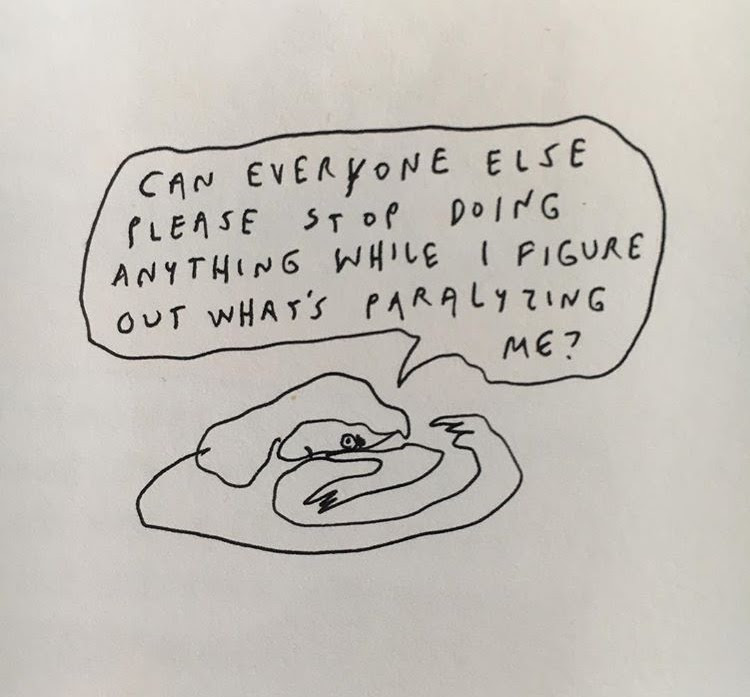Welcome to Coping, Episode Twelve.
Q: How do I cope with anxiety and OCD?
First, I would try to figure out exactly what kind of anxiety or OCD you have. Try keeping notes for a few days and writing down the things that make you anxious. Do you generally feel anxious all the time? Are you anxious when you're around other people? Or are there specific intrusive thoughts that make you anxious, that then make you compelled to do specific actions or think in specific ways to make that anxiety go away? These symptoms could point to different types of anxiety, and while there's crossover among them all, bringing these notes to a therapist could help you figure out if you have more of a generalized anxiety disorder or OCD, and could change the treatment you should prioritize.
Consider finding a therapist for treatment. The evidence-based treatment for OCD is exposure therapy and response prevention (ERP), which will challenge you to expose yourself to what makes you anxious, and prevent any anxiety-quelling responses. The experience of doing it is about as hard as it sounds, so make sure you find a therapist that you're comfortable with who will both push you and respect your boundaries. Staying in therapy is better than quitting altogether.
If you're not in a place where you can afford ERP yet or you can't find a therapist who does ERP, it's easy to apply ERP philosophy to every day life. Try in very small doses not to avoid things that make you anxious. For example, if you have anxieties about being contaminated or dirty, try to wash your hands one time less each day for a week, then two. If that's too hard, there's something called imaginal exposures: You can just imagine doing something anxiety-inducing and sit in the uncertainty and anxiety for as long as you can bear it. Eventually, the anxiety will decrease and you'll build a tolerance to what you're afraid of.
Many people with OCD and anxiety find some relief from mindfulness. This is just the idea that you are more than your thoughts, and if an anxious thought or obsession is haunting you, to try and see it and then let it go.
The Mindfulness OCD Workbook by John Hershfield is very popular and seems to help lots of people with OCD. Or try a webinar or two on intrusive-thought OCD.
Avoid caffeine, or at least limit your intake. It’s surprising how many people are not told that caffeine and anxiety are enemies.
Exercise. 30 minutes, three times a week. If this isn’t your thing, start with one and notice if that day and the next day went any smoother with your anxiety. That may be the motivation you need to feel in order to make it a habit.
Sleep! No, not 5 hours at night and 3 hours after work. I’m talking 8 straight hours.
Schedule worry time. Literally pull out your phone and create a reminder; let’s do ten minutes a day. When a worry pops up while you're in the shower, on your commute, or having sex, tell yourself to save it for worry time. When worry time rolls around, flood yourself with everything you’re stressed about. You’ll realize you can’t really fill the ten minutes, and if you do, you gave your mind the fill that it needed.
Cut out unnecessary stressors. You don’t need to make it to your coworker’s girlfriend’s birthday outing if it means financial stress, less sleep, and little pay-off. Often my anxious friends and clients are the biggest people-pleasers I know. Put yourself first! You’ll thank yourself in the end, and your friends won’t mind half as much as you think. They’ll be happy if you’re happy.
Some related stories:
- This is what dogs with OCD taught me about my own diagnosis.
- 19 everyday things that trigger my OCD.
- This man treated his OCD with psychedelics.
- Creativity and OCD go strangely hand-in-hand.
- Ketamine is showing early success with treating OCD.
- Living with someone who has OCD is an awkward dance.
Today's comic, by Liana Finck:
